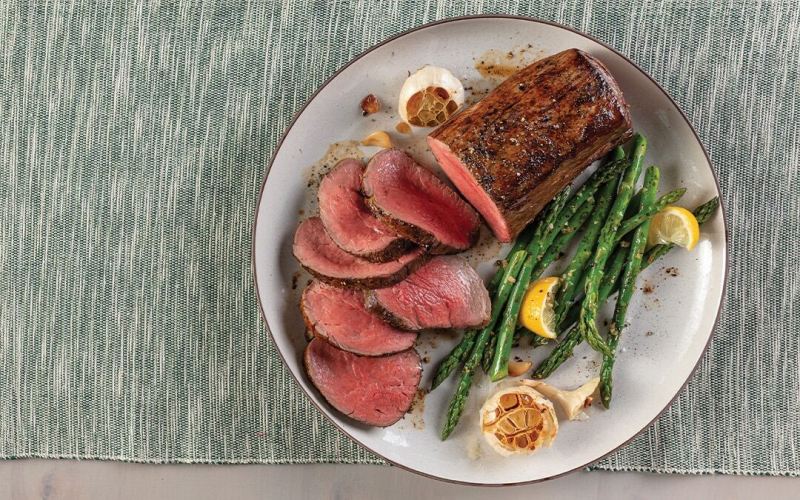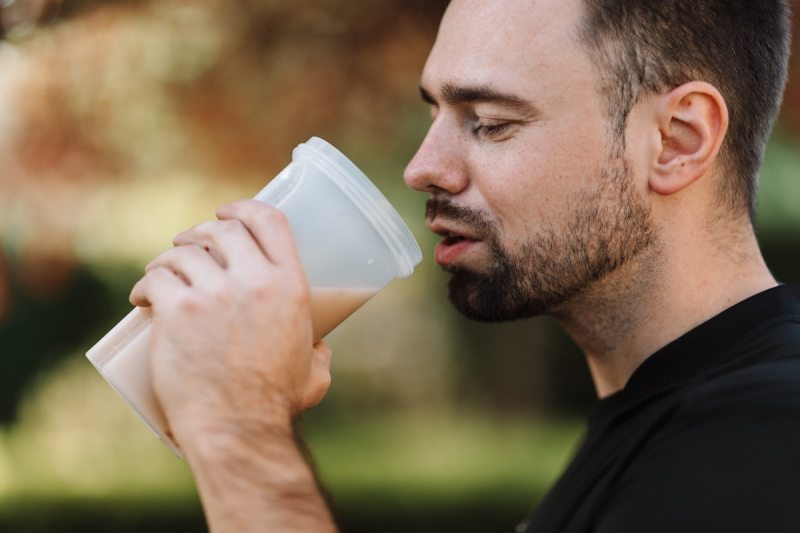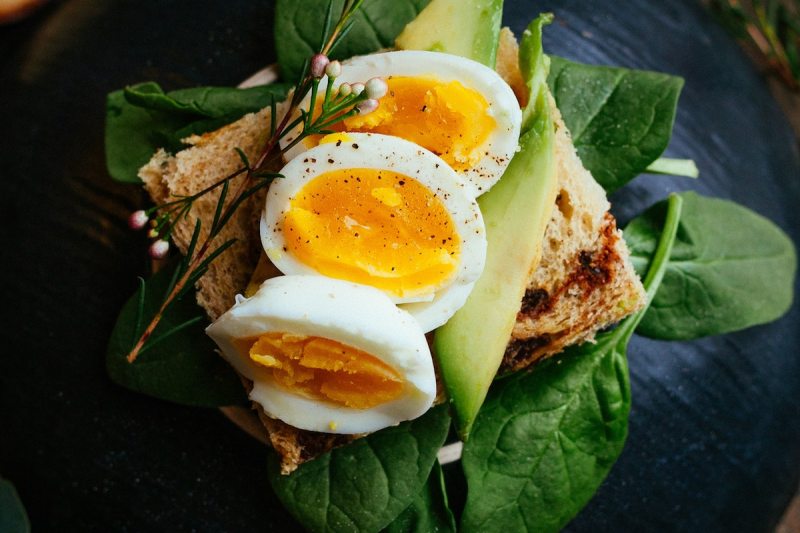Getting enough protein, carbs, and fat in the right proportion is one of the main aims of a healthy diet. The types of protein, carbohydrates, and fats that are consumed are important as well.
Unhealthy sources of carbs and fats have had a lot of coverage recently due to their links to diabetes, obesity, and heart disease. However, a quality protein intake is essential to human health too, and it should not be overlooked.
Proteins are molecules that consist of amino acids, and nine of these are considered essential because they cannot be manufactured by the human body. Therefore, they must be obtained through diet. The body uses these amino acids as building blocks to repair muscles, build bones and create hormones and enzymes.
If anybody knows the importance of protein, especially for muscle gain, it’s personal trainers. In this article, four experts share their views on the topic.
How much protein should someone consume daily?

How much protein an individual should consume depends on various factors. According to David Mason, a qualified SAQ trainer and Fitness Blogger at Barbells Abroad, “As a personal trainer, I can’t stress enough the importance of tailoring protein intake to each individual’s unique needs, which include factors like activity levels, age, and body weight.”
For a sedentary adult, 0.8 grams of protein a day per kilo of body weight is adequate to prevent any symptoms of deficiency. David suggests this amount as a good starting point, but for those who are active or participate in regular moderate to high-intensity activity regularly, he advises that 1.2 to 1.7 grams of protein per kilo of body weight are consumed instead.
The more active a person is, the more protein they need in order to aid muscle recovery and muscle growth.
Can protein powders be a good supplement to whole food protein sources?

It’s not always easy to get the recommended daily amount of protein through food alone, and this is where protein powders can come in handy. They are usually packed with other nutrients as well, such as vitamins, minerals, and antioxidants.
Despite this, Steven Maccarthy, founder of musclebustle.com, warns that even though the powders contain plenty of protein and only a few carbs and fats, they should not be the sole source of protein in the diet. He also states that whole-food protein sources often offer better results than protein powders alone when it comes to muscle gain and recovery.
Is there a time of day when it’s best to consume protein for fitness goals?
Whether the timing of protein consumption is important is up for debate, but the general consensus, which is also shared by Nick Mitchell, Certified Personal Trainer, CEO, and Founder of Ultimate Performance, is that post workout is best, especially if the protein is in the form of a nutritious protein powder shake.
This is because the amino acids present in protein powders and protein, in general, can help repair and build muscle after activity. A protein shake can also aid in hydration, but the amount of protein consumed post-workout is highly dependant on your routine.
11 protein-related fitness tips

1. Beware of protein bars
Protein bars are a quick source of protein and can help fill in gaps between meals helping to maintain a steady protein supply throughout the day.
But Nick Mitchell warns that these products can sometimes be chocolate flavored and therefore be the equivalent of eating a chocolate bar. He recommends low-sugar protein shakes as a better alternative.
2. Eat protein at breakfast
Megan Sparacio, CP. Contributor to Living. Fit, recommends that protein is included at breakfast. This is especially important if the day ahead is a training or workout day. Sparacio also highlights that by including protein at breakfast, such as eggs and protein pancakes, individuals are far more likely to hit their protein intake targets for the day.
3. High-protein snacks
Megan Sparacio also recommends that if it is going to be a particularly long day away from home, then stocking up on high-protein snacks such as boiled eggs can keep hunger at bay and continue to supply the body with protein.
Premade shakes and Greek yogurt are healthy alternatives to carbohydrate-laden convenience foods or poor-quality protein such as high-fat burgers and hotdogs.
4. Protein prevents hunger
Protein foods help to suppress appetite and keep us feeling fuller for longer. This makes snacking on carbs or unhealthy foods less likely throughout the day. High-protein diets suppress the levels of ghrelin in the body; ghrelin is also sometimes referred to as a hunger hormone.
5. Plant-based protein
It is not only meat that contains protein; other protein foods and sources of protein that come loaded with vitamins, minerals, and antioxidants are plant-based. Megan Sparacio, David Mason, Steven Maccarthy, and Nick Mitchell all acknowledge this.
Megan suggests that adding legumes, chickpeas, hummus, and chia seeds can help add variety to protein sources in the diet. Foods such as chia seeds contain protein, fiber, and minerals as well.
6. Chicken breast
If you are looking for a food that is quick and easy to prepare and offers the highest quality protein and other nutrients, such as selenium, then chicken breast ticks all the right boxes. Chicken breast is fat-free and comes highly recommended by Nick Mitchell because of its protein, vitamin B3, B5, and selenium content.
7. Beware of additives in protein products
Manufactured protein products can contain artificial sweeteners and other additives. David Mason states, ‘Keep an eye on those added sugars and artificial sweeteners in protein powders and bars; they can sneak in extra calories and potentially undermine the benefits of your protein supplementation.’
8. Take into account other health conditions
While extra protein for muscle gain is all well and good for healthy individuals, it can be detrimental for those with certain health conditions. Steven Maccarthy cites kidney disease and liver disease as two health conditions where high protein intake is not advisable.
9. Whey protein
Whey protein is a popular supplement, but it can be confusing knowing which ones to buy because of the varieties on the market, but certified personal trainer Nick Mitchell recommends WPI. ‘Whey protein isolates (WPI) have gone through a thorough filtering process, which removes a lot of the lactose, carbohydrates, and fats. This produces a whey powder with a much higher protein content gram for gram, up to 90-96% protein. This is also why WPI and whey protein hydrolysates are more expensive.
10. Don’t forget carbs and fats
How much protein is needed to build muscle is important to figure out when on a high protein-based diet, but as Steven Maccarthy, the founder of musclebustle.com, points out, fats and carbs should not be totally neglected.
Carbs give us energy especially complex carbohydrates that come from sources such as oats and brown rice. Good fats such as monounsaturated fats from olive oil and omega-3 fatty acids from oily fish are beneficial to heart health.
11. Don’t forget nuts
Nuts such as walnuts, peanuts, and hazelnuts are great for snacking on. They are also full of protein and healthy fats and contain vitamins and minerals such as phosphorus.
Editors' Recommendations
- Garmin’s new watch features for runners and cyclists rival Apple’s smartwatch updates
- 5 ways a high-protein diet benefits your health
- Achieve 2023’s most common fitness goals with these tips from a personal trainer




